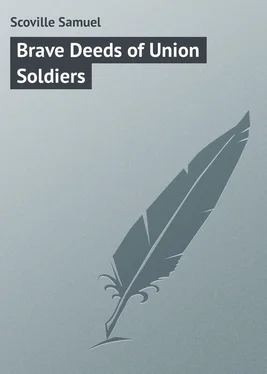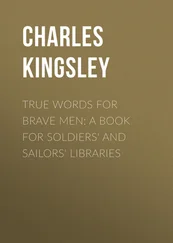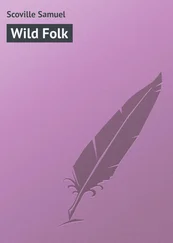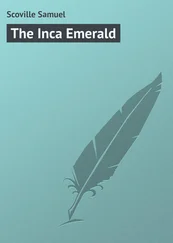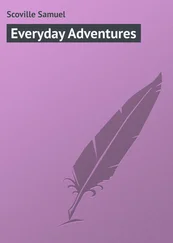Samuel Scoville - Brave Deeds of Union Soldiers
Здесь есть возможность читать онлайн «Samuel Scoville - Brave Deeds of Union Soldiers» — ознакомительный отрывок электронной книги совершенно бесплатно, а после прочтения отрывка купить полную версию. В некоторых случаях можно слушать аудио, скачать через торрент в формате fb2 и присутствует краткое содержание. Жанр: foreign_prose, foreign_humor, Анекдоты, на английском языке. Описание произведения, (предисловие) а так же отзывы посетителей доступны на портале библиотеки ЛибКат.
- Название:Brave Deeds of Union Soldiers
- Автор:
- Жанр:
- Год:неизвестен
- ISBN:нет данных
- Рейтинг книги:5 / 5. Голосов: 1
-
Избранное:Добавить в избранное
- Отзывы:
-
Ваша оценка:
- 100
- 1
- 2
- 3
- 4
- 5
Brave Deeds of Union Soldiers: краткое содержание, описание и аннотация
Предлагаем к чтению аннотацию, описание, краткое содержание или предисловие (зависит от того, что написал сам автор книги «Brave Deeds of Union Soldiers»). Если вы не нашли необходимую информацию о книге — напишите в комментариях, мы постараемся отыскать её.
Brave Deeds of Union Soldiers — читать онлайн ознакомительный отрывок
Ниже представлен текст книги, разбитый по страницам. Система сохранения места последней прочитанной страницы, позволяет с удобством читать онлайн бесплатно книгу «Brave Deeds of Union Soldiers», без необходимости каждый раз заново искать на чём Вы остановились. Поставьте закладку, и сможете в любой момент перейти на страницу, на которой закончили чтение.
Интервал:
Закладка:
At the Battle of Wilson's Creek the Iowa regiment and a part of an Illinois regiment were ordered to clear out a flanking party concealed in a ravine upon the left of the Union forces. The ravine was a deep, long one with high trees and heavy underbrush and dark even at noontime. The Union regiments marched down and there was a dreadful hand-to-hand fight in the brush in the semi-twilight. Men became separated from each other and as in the great battle between David and Absalom, the wood devoured more people that day than the sword devoured. The fight was going against the Union men when suddenly a Union battery wheeled into line on a near-by hill and poured a rain of grape and canister into the Confederates which drove them out in short order. Later on the word was passed through the Union Army that General Lyon had been killed and soon after came the order to fall back upon Springfield. The Iowa regiment and two companies of a Missouri regiment were ordered to camp on the battle-field and act as a rear guard to cover a retreat. When the men came together that night there was no drummer boy. In the hurry and rush of hand-to-hand fighting, Eddie had become separated from Bill and although the latter raged back and forth through the brush like an angry bull, never a trace of his little comrade could he find. That night the sentries stood guard over the abandoned field and along the edge of the dark ravine now filled with the dead of both sides. It was a wild, desolate country and as the men passed back and forth over the stricken field, they could hear the long, mournful, wailing howl of the wolves which were brought by the smell of blood from the wilderness to the battle-field from miles around. That night poor Bill was unable to sleep and moaned and tossed on his blanket and said for the thousandth time:
"If only I had kept closer to the little chap."
Suddenly he sprang to his feet and roused the sleeping men all around him.
"Don't you hear a drum?" said he.
They all listened sadly, but could hear nothing.
"Lie down, Bill," said one of them. "Eddie's gone. We all did the best we could."
"He's down there in the dark," cried poor Bill, "drumming for help, and I must go to him."
The others tried to hold him back for it was impossible to see a foot through the tangled ravine at night and moreover the orders were strict against any one leaving camp. Bill went to the sentry who guarded the captain's tent and finally persuaded the man to wake up the captain. The latter lay exhausted with fatigue and sorrow, but came out and listened as did all the rest for the drum, but nothing could be heard.
"You imagined it, my poor fellow," he said. "There's nothing you could do to-night anyway. Wait until morning."
Bill paced restlessly up and down all through that dark night and just as the dawn-light came in the sky, he heard again faint and far away a drum beating the morning call from out of the silence of the deep ravine. Again he went to the captain.
"Of course you can go," said the latter, kindly, "but you must be back as soon as possible for we march at daybreak. Look out for yourself as the place is full of bushwhackers and rebel scouts."
Bill started down the hill through the thick underbrush and wandered around for a time trying to locate the drum-beats which were thrown back by the trees so that it was difficult to determine from what point they came. As he crept along through the underbrush, they sounded louder and louder and finally in the darkest, deepest part of the ravine, he came out from behind a great pin-oak and saw his little comrade sitting on the ground leaning against the trunk of a fallen tree and beating his drum which was hung on a bush in front of him.
"Eddie, Eddie, dear old Eddie," shouted Bill, bursting through the thicket. At the sound the little chap dropped his drumsticks and exclaimed:
"Oh, Bill, I am so glad to see you. I knew you would come. Do get me a drink."
Bill started to take his canteen down to a little near-by brook when Eddie called him back.
"You'll come back, Bill, won't you," he said, "for I can't walk."
Bill looked down and saw that both of his feet had been shot away by a cannon-ball and that the little fellow was sitting in a pool of his own blood. Choking back his sobs, the big fifer crawled down to the brook and soon came back with his canteen full of cold water which Eddie emptied again and again.
"You don't think I am going to die, do you, Bill?" said the little boy at last. "I do so want to finish out my time and go back to mother. This man said I would not and that the surgeon would be able to cure me."
For the first time Bill noticed that just at Eddie's feet lay a dead Confederate. He had been shot through the stomach and had fallen near where Eddie lay. Realizing that he could not live and seeing the condition of the boy, he had crawled up to him and taking off his buckskin suspenders had bandaged with them the little fellow's legs so that he would not bleed to death and on tying the last knot had fallen back dead himself. Eddie had just finished telling Bill all about it in a whisper, for his strength was going fast, when there was a trampling of horses through the ravine and in a minute a Confederate scouting party broke through the brush, calling upon Bill to surrender.
"I'll do anything you want," said Bill, "if you will only take my little pal here safe back to camp and get him into the hands of a surgeon."
The Confederate captain stooped down and spoke gently to the boy and in a minute took him up and mounted him in front of him on his own horse and they rode carefully back to the Confederate camp, but when they reached the tents of the nearest Confederate company they found that little Eddie had served out his time and had given his life for his country.
On June 30, 1862, was fought the stubborn battle of Glendale, one of the Seven Days' Battles between McClellan, the general of the Union forces, and Lee, the Confederate commander. This battle was part of McClellan's campaign against Richmond, the capital of the Confederacy which he had within his grasp when he was out-generaled by Lee, who that month for the first time had been placed in supreme command of the Confederate Army. With him were his two great generals, Stonewall Jackson and Longstreet. McClellan was within sight of the promised land. The spires of Richmond showed against the sky. Instead of fighting he hesitated and procrastinated away every chance of victory. Lee was even then planning that wonderful strategy which was to halt a victorious army, turn it away from the beleaguered capital of the Confederacy and send it stumbling back North in a series of defeats. It was necessary for him to have a conference with Stonewall Jackson, his great fighting right-hand in military matters. Jackson rode almost alone fifty miles and attended a conference with Lee, Longstreet and Generals D. H. and A. P. Hill. To each of them General Lee assigned the part that he was to play. In the meantime, knowing that McClellan always read and pondered the Richmond papers, he arranged that simultaneously every paper should publish as news the pretended facts that strong reinforcements had been sent to the Shenandoah Valley. McClellan fell into the trap and instead of pressing forward to attack Richmond, which was now only guarded by a small force, he, as usual, waited for reinforcements and allowed his antagonists to march around him and start flanking battles which threatened to cut off his line of communications. The battle of Gaines Mill was fought in which battle General Fitz John Porter with thirty-one thousand men stubbornly faced Lee and Jackson's forces of fifty-five thousand and with sullen obstinacy only retreated when it was absolutely impossible longer to hold his ground. This defeat, which occurred simply because McClellan could not bring himself to send Porter the necessary reinforcements, made General McClellan resolve to withdraw, although even then, with a superior army, he could have fought his way to Richmond. From June 25th to July 1, 1862, occurred the Seven Days' Battles fought by the retreating Union Army. By one of the few mistakes which General Lee made in that campaign, the Union Army was allowed a respite of twenty-four hours to organize its retreat and were well on their way before pursuit was given. On June 29th there was a battle between the rear guard of the Union force and the Confederate's under General Magruder in which the Confederates were defeated. The next day came the battle of Glendale. Generals Longstreet and A. P. Hill commanded the Confederate Army while the rear guard of the retreating Union forces was made up of General McCall's division and that of General Heintzelman and a part of the corps under General Sumner which had done such gallant fighting the day before. It was a stern and stubborn battle. If the Confederates could cut through the rear guard, they would have the retreating army at their mercy. On the other hand, if they could be held back, the main army would have time to occupy a favorable position and entrench and could be saved. For a time it seemed as if the Confederate attack could not be checked. Every available man was called into action. Back at the rear were posted the hospital corps where the sick and wounded lay. With them were stationed the band and the drum-corps made up of drummer boys who were supposed to keep out of actual fighting as much as possible. Among them was a little Jewish boy named Benjamin Levy, who was only sixteen years old and small for his age. Benjamin stayed back with the hospital while the roar of the battle grew louder and louder. Finally there was a tremendous chorus of yells and groans and shouts mingled with the rattle of rifle-shots and the heavy thudding sounds which sabres and bayonets make as they slash and pierce living flesh. Little groups of wounded men came straggling back or were carried back to the hospital and each one told a fresh story of the fierce fight which was going on at the near-by front. Benjamin could stand it no longer. The last wounded man that came in hobbled along with a broken leg, using his rifle for a crutch. The boy helped him to a near-by cot and made him as comfortable as he could.
Читать дальшеИнтервал:
Закладка:
Похожие книги на «Brave Deeds of Union Soldiers»
Представляем Вашему вниманию похожие книги на «Brave Deeds of Union Soldiers» списком для выбора. Мы отобрали схожую по названию и смыслу литературу в надежде предоставить читателям больше вариантов отыскать новые, интересные, ещё непрочитанные произведения.
Обсуждение, отзывы о книге «Brave Deeds of Union Soldiers» и просто собственные мнения читателей. Оставьте ваши комментарии, напишите, что Вы думаете о произведении, его смысле или главных героях. Укажите что конкретно понравилось, а что нет, и почему Вы так считаете.
